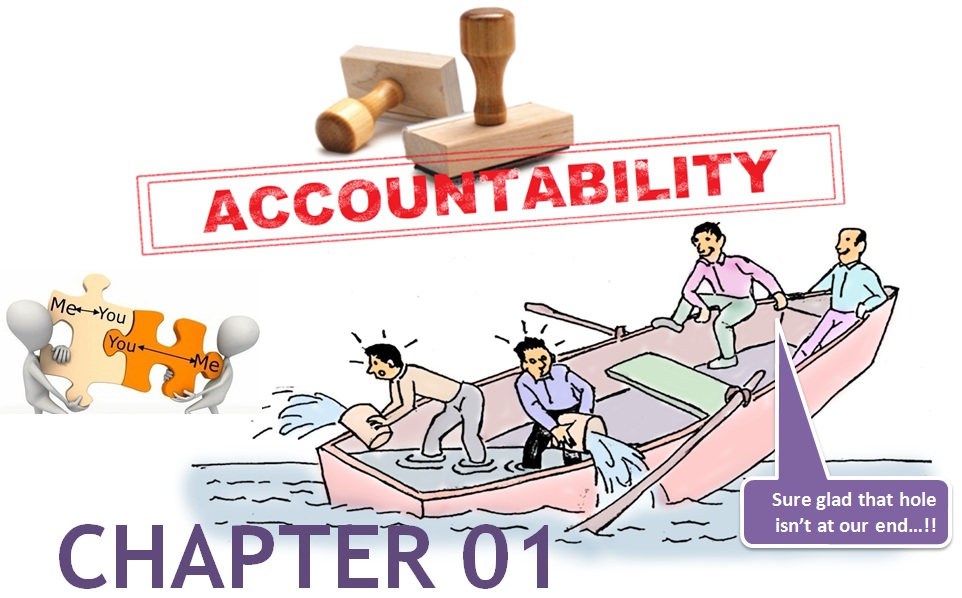
Most people view accountability as something that happens to them or is inflicted upon them, choosing to perceive it as a heavy burden to carry. In fact, many people think about accountability as a concept or principle to be applied only when something goes wrong or when someone else is trying to determine cause and pinpoint blame. Often, when things are moving along smoothly and failure has not yet set in, people rarely ask “Who is accountable for this or that?” It seems that only when the boat is filling up with water or the fire is out of control do people start looking around for the responsible party.
The Oxford Advanced Learner’s Dictionary defines accountability as “the fact of being responsible for your decisions or actions and expected to explain them when you are asked”. This in itself is a slightly negative connotation of accountability. “……..to explain them when you are asked’- implying a post-op view with little choice to the state of accountability. This confession-oriented and powerless definition suggests that accountability is a state someone arrives at after the event. Here is another definition:
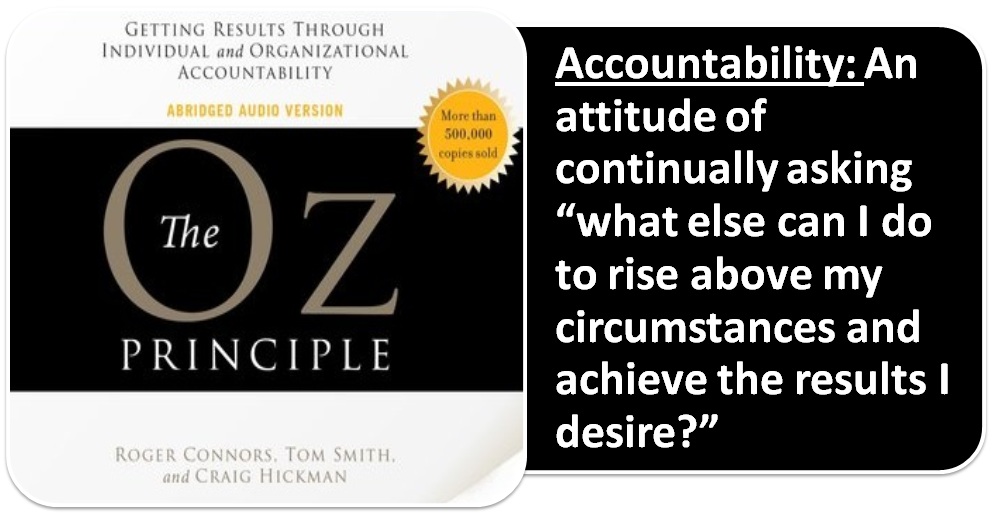
This implies that accountability is the process of owning it and doing it. It requires a level of ownership that includes proactively taking charge of commitments. It is a perspective that embraces both current and future efforts rather than reactive and historical explanations.
The Blame: Whose Fault is it
Imagine this. We are babysitting two kids. And they are running around pushing each other and doing the usual obnoxious things. Then suddenly we hear a crash. In the next room, a super sacred one million rupees worth vase that the wife’s grandma made with her bare hands during the her toughest times is knocked off the table and lies on the floor in a thousand pieces.
What happens? The two kids immediately point blame the other. They present their cases. They start whining and cutting each other off. Now, let’s say one of them is a little naughty and violent and we have a hunch that it’s probably his fault anyway (bias). What do we do? Nothing. We either punish them both, or do nothing.
None of this changes the fact that both of them were running around and being reckless near nice precious objects, or the fact that theoretically, both were behaving negligently enough to cause destruction. It also does not change the fact that the vase is broken and is never coming back. One could even argue that it’s our fault for putting such a valuable item in a vulnerable place around kids. We spend a lot of our time and effort looking for whose fault something is, even when it doesn’t matter.
Here is another instance. We order a nice steak at a restaurant and it arrives under-cooked after a long wait. We want to blame the cook so we call the manager over and go on a tirade. But who knows, maybe the steak was poorly prepared by someone else, or the steak was not stored correctly the night before, or it was a faulty supply. Or maybe they tried buying from a faulty supplier. Or maybe there is a poor system of communication in the restaurant and so misunderstandings are prevalent and this affects how the food is prepared. But no, the cook was at fault, and needs to be made aware of the blame. As humans, we all enjoy a scapegoat; we need a scapegoat.
We see this most often with the government. An entire bureaucratic system may be at fault, causing continuous waste and inefficiency, but a few people get blamed and fired and the system continues. The public is satisfied. Someone is blamed and punished, so everything must be right again.
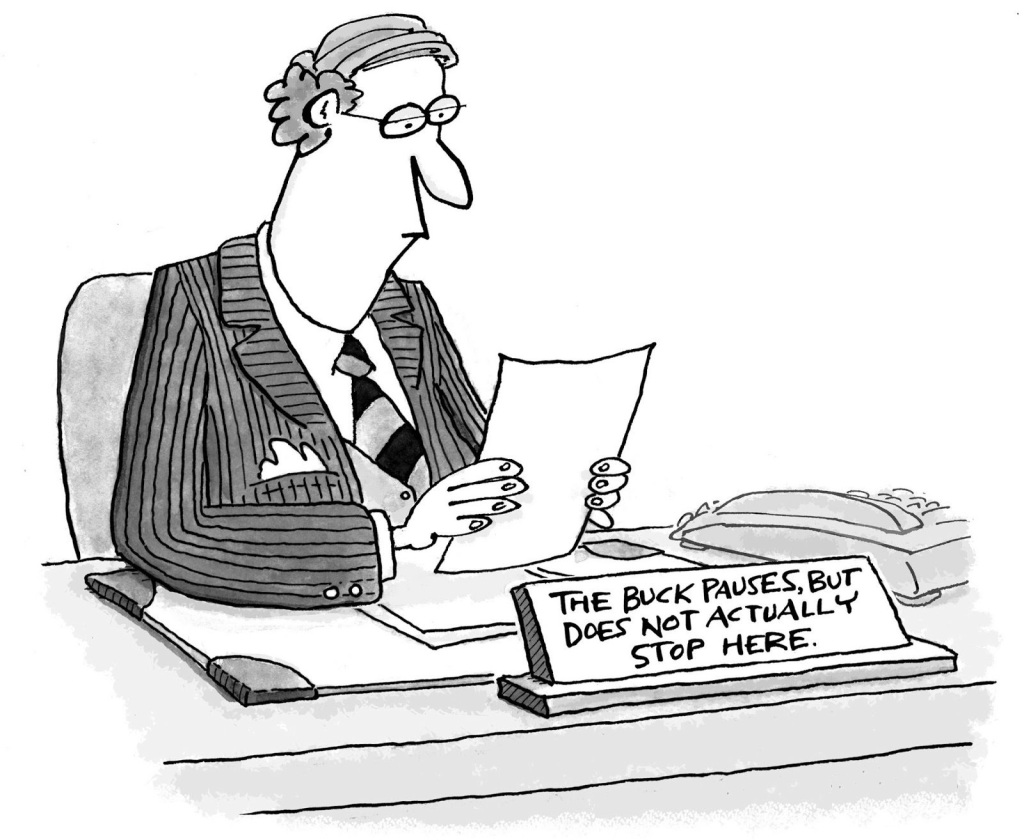
What is Personal Accountability?
Personal accountability is being willing to accept the consequences resulting from our choices, actions, or behaviors. Being personally accountable means owning the situations that we have been a part of. This means taking responsibility for the outcome, whether it is good or bad, and doing our best to rectify the situation. While it can be challenging to assert accountability, especially when the situation is not good or we have failed on a task, it is in these situations when personal responsibility matters most. By taking ownership of the situation, action, or choice, we build:
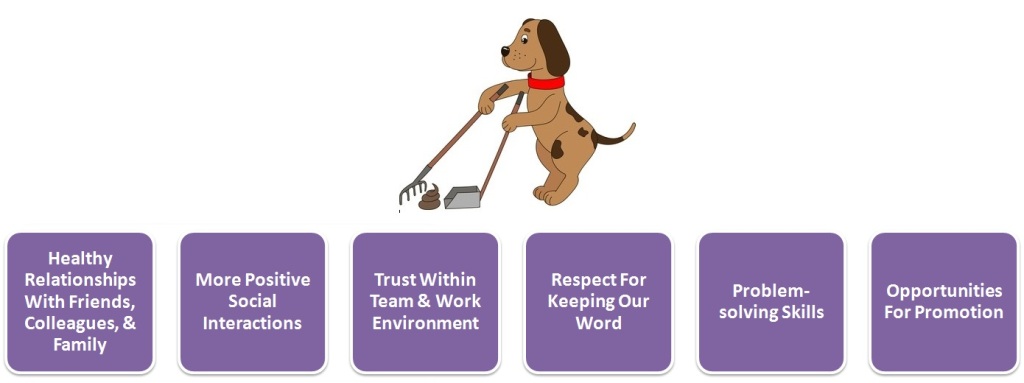
When we show that we are trustworthy, dependable, and willing to take ownership even when things fail, we become someone senior colleagues can depend on and will earn leadership opportunities. There are times when it’s important to know whose fault it is. Like when engaging in chemical warfare. Or finding out who pissed on the toilet seat. But in most of the cases in our lives, it’s an inconsequential distraction. And it is based largely on ego gratification and little on actual life improvement.
What Is the Blame Game?
When something goes wrong and we feel threatened, it’s natural to want to defend ourselves against any repercussions. We might find ourselves scape-goating or trying to shift the blame elsewhere. We may try to distance ourselves from a problem, fearing that taking responsibility for errors or mistakes could harm our careers or make us look bad. But this approach doesn’t solve anything. Shifting the blame will not help us fix the problem that caused the delay. Sometimes it is all too obvious when a team is playing a blame game. But it can happen in more subtle ways, too, like:
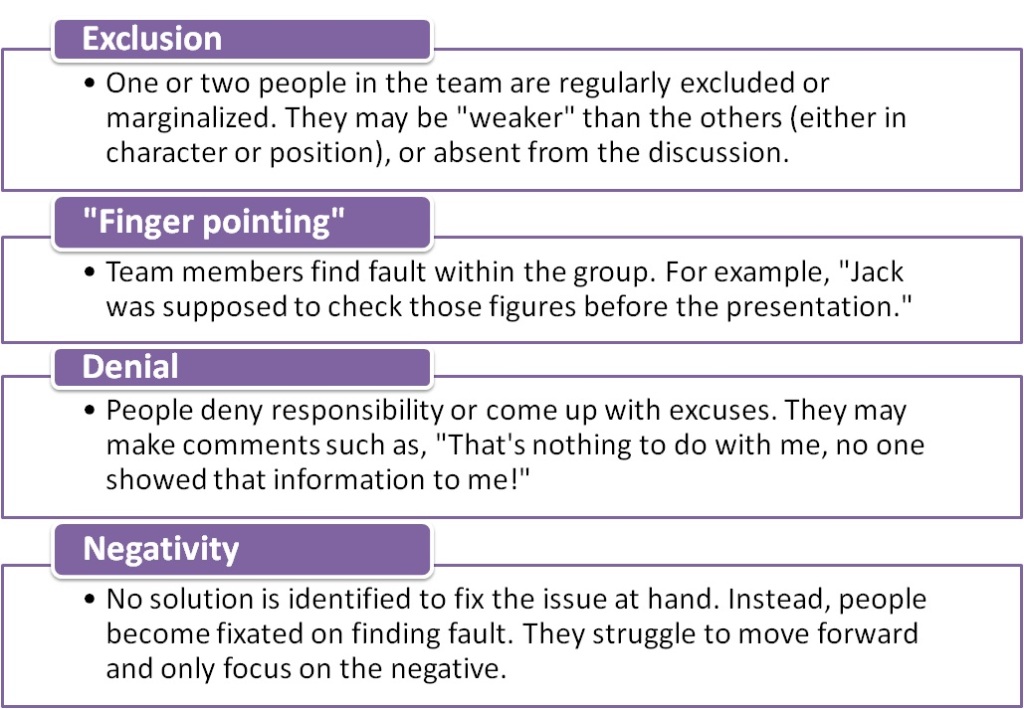
The Impact of Blame
Blaming others can have a detrimental effect on morale and performance. Team members may feel belittled or humiliated if they’re pinpointed for blame – especially if it is not their fault.
A culture of blame may also lead to individuals or teams being scapegoated when the real problem may lie elsewhere, or have a number of causes. It is easier to blame someone in another department or building than it is to point the finger at someone we sit with every day.
Over time, this type of scapegoating may even perpetuate bias or prejudice, or lead to accusations of discrimination. Also, it can damage the integrity of other team members who witness it, especially if they do nothing to stop it. “Passing the buck” can deplete trust with stakeholders. Conversations along the lines of, “Well, that is the finance team’s fault, not ours, so I cannot help you” can make the whole company seem incompetent.
Blame can also stunt creativity and innovation within the organization – if people are afraid to try new things in case they do not work out, this can reduce team and company performance in the longer term. Finally, some individuals may be prone to accepting blame where it is not warranted. A protective manager, for example, may “take the rap” for someone else’s mistake. Or, an individual who is highly self-critical may view everything as their fault, even when it is not.
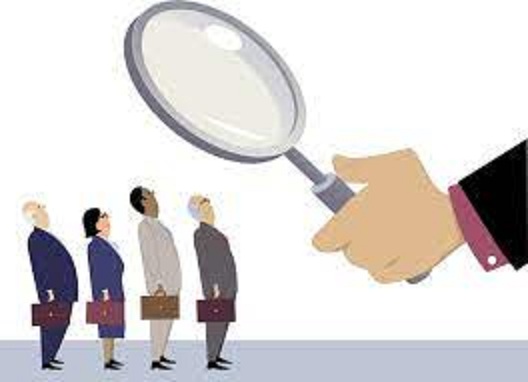
***To be continued in Chapter 02 (Ways To Move Away From Blaming, Accountability & Engagement, Accountability Ladder, Victimization & Accountability, Guiding To Rise Above Accountability) Link to Chapter -02:

Content Curated By: Dr Shoury Kuttappa.


One reply on “THE PATH TO ACCOUNTABILITY: BEHAVIORS ASSOCIATED – CHAPTER 01”
[…] THE PATH TO ACCOUNTABILITY: BEHAVIORS ASSOCIATED – CHAPTER 01 […]
LikeLike